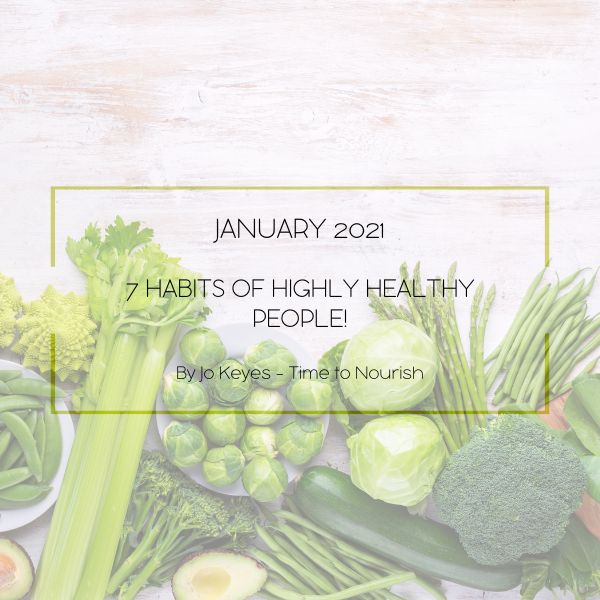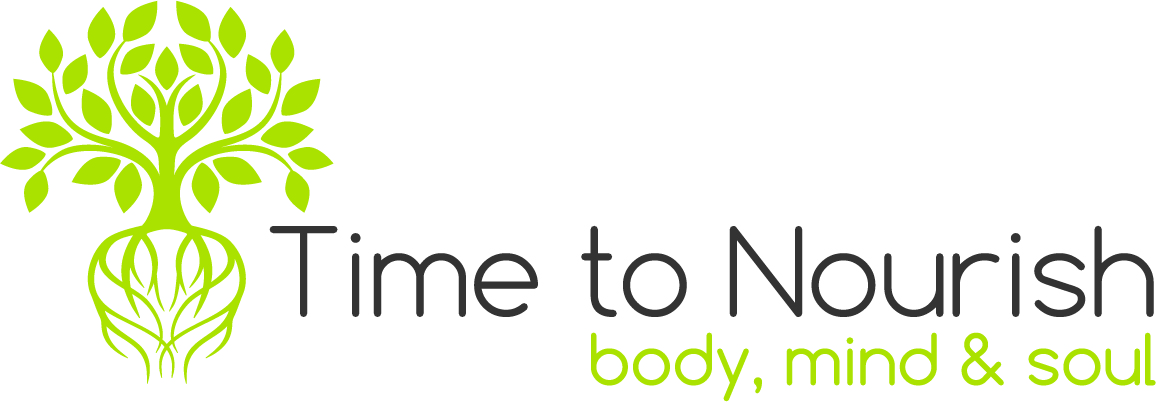
It has been quite a year where many of us have felt out of control, routines have had to change and life has generally been turned upside down!! But it is a New Year and there is light at the end of the tunnel (even if it is quite dim at the moment).
When our routines have to change this can either help or hinder our regular habits. When we bring some awareness to our habits, healthy or otherwise, only then can we change them or build on them.
So take some time to think about your habits in all of these areas and use this time to build and embed some great habits for when life gets back to normal.
STAY HYDRATED
I think we probably all know that drinking water and keeping hydrated is beneficial for us and a good guide is a minimum of 1-2ltrs per day. However it is more about hydration than just the amount of water we drink. Every cell and organ in the body requires water to function efficiently. It helps us to digest and absorb the food we eat, regulate our temperature, improve our circulation, remove toxins and is crucial to optimum brain function.
If we start to get dehydrated we may feel thirsty, have dry skin or cracked lips but we may also have other symptoms which we may not immediately relate to dehydration. For example:
- Headaches, brain fog, poor memory and concentration
- Muscle cramp
- Low energy levels and mood
- Weight gain
- Weakened immune system
Here are some ideas to help keep you hydrated in the colder months:
- Start the day with a cup of hot water with lemon or a tsp of apple cider vinegar.
- Buy a new flavour of herbal tea you want to try.
- Fill up a water bottle in the morning and aim to refill at lunchtime and dinner time so it is empty before bed.
- Drink some coconut water which is full of electrolytes helping to balance fluids in the body.
- Eat fruit and veg with high water content, like cucumber, watermelon, celery, bell peppers, kiwi etc
- Exercise to get the blood pumping and fluids circulating
FOCUS ON GREENS
Most of you will know I am a big fan of the green smoothie and this (almost daily) habit is very well established. Salad may not be so appealing in the winter months, but a warming green soup does the trick.
Why are greens so good for us?? Because they help to:
- reduce cravings
- aid weight loss
- increase energy
- improve sleep
- improve joints function by reducing inflammation
- populate the gut with good bacteria
- detoxify our systems
Try some of these ideas to increase greens in your diet:
- Smoothie or Juice
- Salads
- Green soup – try broccoli, courgette, pea, kale or spinach
- With egg in scramble or omelette or egg muffin
- Sautéed broccoli, green beans or mangetout with onion, garlic and chilli as a side
- Add to stir fry and noodle dishes
- Shred spinach and add to soups and stews before serving
- Puree into sauces and dips eg pesto, salsa verde
If you find you run out of fresh leafy greens make sure you have a supply of frozen greens to choose from.
EAT THE RAINBOW
Rainbows became very symbolic at the beginning of the pandemic. For me they will always represent the array of nutrient dense foods we can eat!
We need to remember to check in with the variety of colours we are consuming in the form of fruit and veg as the different colours signify different nutrients and the full spectrum will ensure a nutrient dense diet.
To increase your intake of fruits and vegetables make sure that every meal (even breakfast) has a minimum of 2 different vegetables. Be creative with
them, they don’t need to be just plain steamed on the side of the main event on the plate.
Here are some ideas to try:
- Make a stir fry
- Roast different Mediterranean or root vegetables
- Make a big mixed leafy green salad and add a dressing
- Make a big chunky vegetable or fruit salad
- Make vegetable soup or smoothies
- Make vegetable mash try celeriac, cauliflower and leek, sweet potato or carrot and swede
- Make a mixed vegetable frittata
- Make a lentil and veg Bolognese, cottage pie or lasagne
HAVE A BALANCED PLATE
Having a balance of quality macro nutrients (Fats, Carbs and Protein) is important to ensure the body is getting what it needs and that our digestion and absorption of glucose is slow and steady. This will ensure our blood
sugars stay balanced, it will increase our energy levels throughout the day and balance our moods.
What to focus on when you fill your plate to help balance your blood sugar:
- Low GI complex carbohydrates – these are high in fibre and nutrients helping with detoxification, healthy digestion and feed the good gut bacteria. Choose whole grains, beans, pulses, whole fruits and vegetables.
- Quality Protein – this is important for building and repairing cells, they help makes enzymes, hormones and other crucial chemicals for the bodies function. Choose organic meat and wild fish, beans and pulses, eggs, nuts and seeds, yoghurt and cheese if not dairy free.
- Healthy Fats – don’t be scared of them they are important for supporting brain function, hormone balance, immunity and help reduce cholesterol. Choose unrefined oils like olive oil, avocados, oily fish, eggs, nuts and seed butters, full fat organic dairy and dark chocolate.
SLEEP WELL
Having enough sleep is crucial to both our physical and mental health.
When daily routines change it can impact our sleep patterns either for better or worse. Adults are advised to get 7-9 hours a night. I am finding that I am going to bed earlier and earlier, sleeping well but still only for 7 hours and rising earlier and earlier!!
If you struggle to sleep, from a nutrition perspective look to increase your magnesium, B vitamins, zinc and tryptophane. Choose nuts and seeds,
green vegetables, bananas, beans and pulses and eggs.
Other tips that will help you sleep include:
- Reduce caffeine in the afternoon
- Reduce technology near bed time
- Ensure your bedroom is dark
- Keep active
KEEP ACTIVE
Yes we all know we need to exercise and often this is a habit you either find comes naturally, often if you were sporty as a kid playing team sports, or it is something you continually have to work hard at doing regularly! My advice would be
- Keep it simple
- Keep it short
- Keep it varied
- And find something you love doing!
PRACTICE MINDFULLNESS
I am finding this so important at the moment. With the house full of people all the time, little head space and alone time, increased anxiety if I watch too much news, change in routine and different pressures (and no pressure) on my time can all get a bit overwhelming.
Establishing your own routine for mindfulness and taking some me time in whatever form that takes; meditation, prayer, walking, yoga, etc has been proven to have numerous health benefits including:
- Reducing stress
- Increased ability to fight illness and facilitate recovery
- Decrease symptoms of depression and anxiety
- Lower heart rate and blood pressure
- Increase awareness, attention and focus
So if you master a good routine with these 7 habits it will all add up to a highly healthy long life!
If you’d like to receive my monthly blogs directly into your inbox, sign up to my newsletter here.
You can learn more about healthy eating and healthy habits with myself and Anya Macfarlane, an NLP Practitioner, in our Menu&Mind challenge. Find out more at www.menuandmind.co.uk.
[/vc_column_text][/vc_column][/vc_row]


